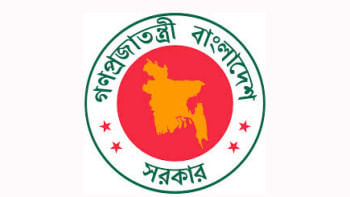1971 Bangladesh Liberation War
Victory Day special / Actor Sohel Rana recalls heroic days of Liberation War
Sohel Rana, the celebrated actor of the golden era and a valiant freedom fighter, recently shared his vivid memories of the 1971 Liberation War, highlighting the fear, bravery, and overwhelming joy of victory. In an exclusive interview with The Daily Star, Rana reflected on his role as a student leader, his involvement in politics influenced by Bangabandhu Sheikh Mujibur Rahman, and his experiences on the battlefield.
When the message of Bangladesh’s liberation travelled on two wheels
Jamal Hasan and his three teammates decided to go on a goodwill mission for the fledgling state to thank the people of the world for supporting their Liberation War.
War in the waters: Looking back at Operation Jackpot, 1971
Operation Jackpot was the first—and allegedly best—campaign of naval commandos during the Liberation War of 1971, a deadly blow against the Pakistani invasion forces carried out on August 16, 1971.
Remembering my teacher Dr Jyotirmoy Guhathakurta
On the fateful night of March 25, 1971, Prof Jyotirmoy Guhathakurta was dragged out of his university flat and shot repeatedly on the back by the Pakistan Army.
BOOK REVIEW: FICTION / Family of feelings: Iffat Nawaz's 'Shurjo's Clan'
Part memoir, part magical realism, this is a story about identity and the idea of home.
Full list of martyred intellectuals likely before March 26 next year
Liberation War Affairs Minister AKM Mozammel Haque today said he is hopeful that the full list of intellectuals will be published before March 26 next year.
Kissinger who called Bangladesh 'basket case' says US role in 1971 was a 'misjudgment'
Bangladesh is set to mark tomorrow the 50th anniversary of diplomatic ties with the United States that had tilted towards Pakistan in 1971 while a key US policymaker at that time, Henry Kissinger, later called the stance “a case history of political misjudgment”.
High Commission of India launches Bangla edition of book, 'Operation X'
On November 8, the High Commission of India hosted a book launching ceremony wherein the Bangla version of Operation X (HarperCollins Publishers India, 2019) was unveiled.
THE BIRTH OF BANGLADESH IN BOOKS / The legacy of blood
Henry Kissinger is infamous in Bangladesh for allegedly terming the newly-independent country a “bottomless basket”, but this statement appears to be the least of his crimes against the people of Bangladesh.
Razakars’ list may be out on Dec 16
The government is going to publish the names of 11,000 Razakars who had been on Pakistan payroll and collaborated with the Pakistan occupation army in mass killings and carrying out atrocities against freedom fighters during the Liberation War.
War crimes: Evidence found against 3 AL men
Investigators of International Crimes Tribunal (ICT) have found evidence against three Awami League men over their alleged involvement in crimes committed during the country’s Liberation War.
Verdict on Rajshahi ‘war criminal’ any day
The International Crimes Tribunal-1 will deliver verdict any day in a case filed against a Rajshahi man for allegedly committing crimes during the Liberation War in 1971.
Int’l community urged to recognise genocide of ’71
The International Crimes Tribunal-1 says the global community should recognise the genocide happened in Bangladesh during the Liberation War so that such crimes do not recur.
Death for 5 Netrokona war criminals
International Crimes Tribunal-1 has handed death to five war criminals from Netrokona upon conviction in war crimes of 1971.
Liberation War: More foreign friends to be recognised
After a pause of six years, the government will once again formally honour foreign personalities and institutions who stood by Bangladesh during its War of Independence in 1971.
Nation observes one-minute 'blackout' marking 'Genocide Day'
For the third successive year, the nation observed a one-minute 'blackout' programme on Monday night, marking the 'Genocide Day'.
Digital map highlighting torture centres and mass graveyards
For the first time in Bangladesh, a digital map has been developed pinpointing torture centres and mass graveyards to expose the magnitude of the genocide carried out by the Pakistan occupation army during the Liberation War in 1971.
Yahya in town
On this day in 1971, all offices and businesses remained shut in continuation of a peaceful movement.
Songs of freedom
A nation waited with bated breaths days before Bangabandhu Sheikh Mujibur Rahman's soon-to-be historic rally to be held at Race Course ground.











